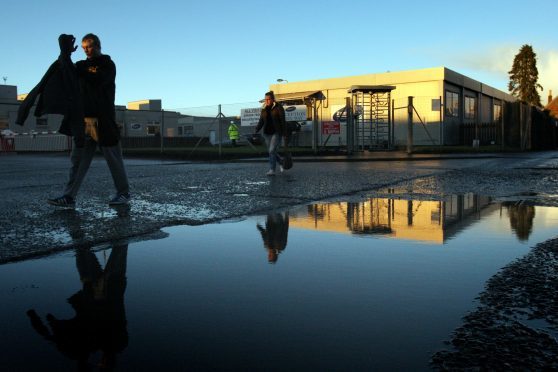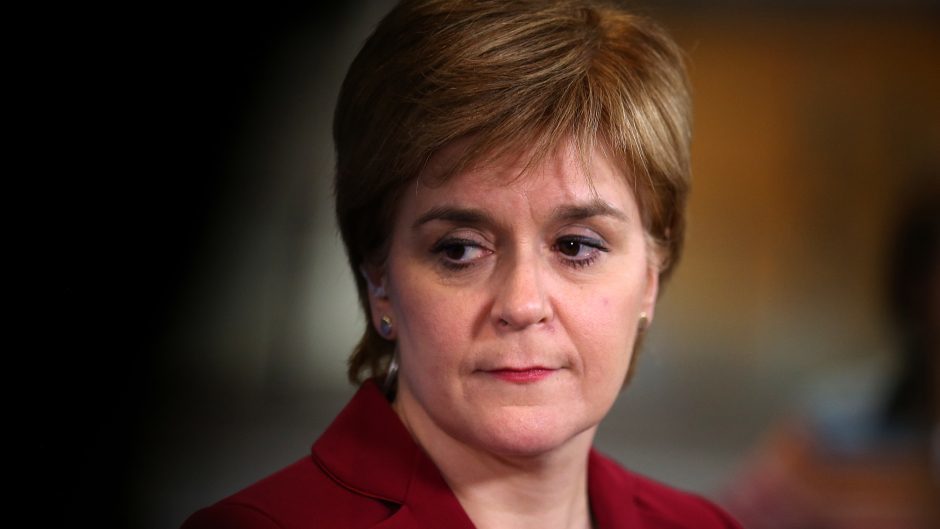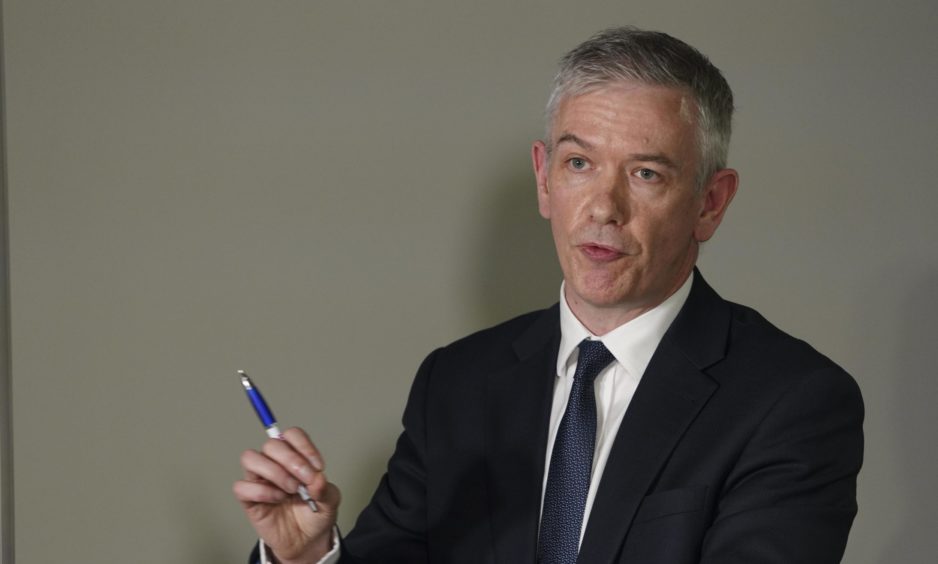A Perthshire food processing plant linked to a growing coronavirus outbreak will remain closed for at least two weeks, as the number of positive cases associated with the cluster surged to 29.
NHS Tayside confirmed a further 14 new cases had been identified in connection with the 2 Sisters chicken factory in Coupar Angus by 2pm on Wednesday, just hours after Nicola Sturgeon said the figure had increased by seven overnight.
The plant was closed temporarily on Sunday and two days later, when eight staff members and two members of the community had tested positive, Ms Sturgeon said officials were now dealing with a “complex and potentially significant” cluster.
Speaking at the daily coronavirus briefing on Wednesday, the first minister confirmed all 900 employees at the 2 Sisters factory had been advised to self-isolate, and the site would remain closed for at least two weeks while officials work to tackle the outbreak.
A mobile testing unit set up by the military will remain on the scene for the rest of the week and all workers will be told they should attend for a test, even if they show no symptoms.
Staff members will remain at home until at least August 31, 14 days after the factory first closed, but children of the workers who are self-isolating can continue to attend school as long as they have no symptoms and have not tested positive.
Dr Emma Fletcher, NHS Tayside’s associate director of public health, said: “All agencies continue to work closely together to manage the outbreak related to the factory.
“We strongly encourage all workers to take up the offer of testing to help prevent further spread of the infection in the community.
“The public should be reassured that the plant remains non-operational; however, contractors are continuing to attend the site to ensure animal welfare.
“Our advice to the wider community is to remain vigilant to this infection. Please continue to follow the Facts guidance and if anyone is experiencing symptoms of coronavirus, they should self-isolate and seek a test.”
A breakdown of the latest Public Health Scotland data, released prior to the update from NHS Tayside, showed 12 positive tests involving people from Tayside had been registered between Tuesday and Wednesday morning.
Of this number, eight were recorded in Dundee, two were in Angus, and a further two in Perth and Kinross. Two new cases were also recorded in Fife.
It was the second day in a row Dundee has experienced an increase in people testing positive for the virus. Ms Sturgeon also confirmed a case linked to the city’s Kingspark School, which had been reported on Tuesday.
A total of 50 new cases were recorded across Scotland, taking the number of people who have tested positive for the virus since the pandemic began to 19,457.
Ms Sturgeon said she did not believe Scotland was experiencing a second wave of the virus and that the increase – from two daily cases in early July to 50 in the most recent figures – was instead a “spike in the first wave”.
She added it was not clear if there will be a second wave and the scientific opinion is “still out” on whether the virus will follow a seasonal pattern similar to the flu or consist of one long wave that goes up or down depending on restrictions and compliance.
The interim chief medical officer, Dr Gregor Smith, agreed with the first minister, explaining the increase in cases could be a result of localised clusters in Aberdeen and other parts of the country.
“We’re not experiencing a second wave at this time; in fact, there are many epidemiologists and public health experts who don’t even agree with the terminology that’s used there,” Dr Smith said.
“We do need to understand why the numbers have risen and certainly the evidence suggests that just now the increase in the numbers that we’ve seen over the last week or so is particularly driven by a number of clusters across the country.
“What we don’t have any evidence for just now is of sustained community transmission across Scotland that would signify we could be at risk of moving into another rapidly increasing phase of cases.”
He added Scots should ensure they remain “vigilant” to ensure cases of community transmission do not increase.


